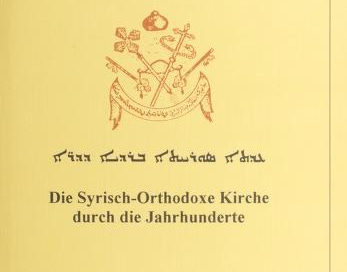The Teaching of the Syriac Church
From the book "The Syriac Orthodox Church Through the Centuries" (1980)
The following text is provided as a summary of the teaching of the Syriac Orthodox Church, as shared at the end of the book The Syriac Orthodox Church through the Centuries, written by His Holiness Ignatius Zakka I Iwas, Patriarch of Antioch in 1980.
“The Syriac Church derives its teachings from the divine inspiration revealed in Holy Scripture, as interpreted by the holy fathers, and from the traditions, we have received from the holy apostles. It accepts and signs faith as defined by the three sacred Ecumenical Councils of Nicea (325 AD), Constantinople (381 AD), and Ephesus (431 A.D. Chr.).
The following 10 points are a summary of her most important doctrines of the faith:
1) She believes that God, who is the Most High, one in three different personifications (persons): the Father, the Son, and the Holy Spirit, and that these three persons are equal in every way.
2) She believes that the second person of the Holy Trinity came down from heaven to earth, dwelt in the body of the Virgin, accepted a complete human body from her through the Holy Spirit, and thus became God incarnate.
3) She believes that our Lord and Master Jesus Christ is all God and at the same time is all man and that he is a person from two persons, and a nature from two natures without mixing or uniting or merging or changing.
4) She believes that the incarnate God was crucified, died, and buried. In all this, divinity did not deviate, neither from his soul nor from his body.
That he rose from the dead on the third day and saved humanity from death, devil, and sin. That he will ascend into heaven and come back to judge the world. The church is expecting his return at any time.
5) She believes that the Holy Spirit, the third person of the Holy Trinity, comes from the Father alone.
6.) She believes that Saint Mary, the Virgin, was born in original sin by her father Joachim and her mother Anna. Then she was purified by the descension of the Holy Spirit upon her. The word of God dwelt in her body and was born by her. That's why we consider her the "mother of God" (Theotokos)
7.) The Church believes in the intercession of the saints, martyrs, and the victorious righteous. She venerates their relics and celebrates their festivals.
8.) The Church prays in favor of the dead by asking for God's grace and forgiveness for them.
9.) The Church gives the seven holy sacraments, namely: (1) baptism, (2) holy Chrisam, (3) the Eucharist, (4) confession, (5) the anointing of the sick, ( 6) marriage and (7) the priestly ordination.
10.) The Church believes in the resurrection of the body with its soul on the day of judgment at the second coming of Jesus Christ. Everyone will receive the reward they deserve.”1
Patriarch Ignatius Zakka I Iwas. Die Syrisch-Orthodoxe Kirche durch die Jahrhunderte. Translated by Rolf Boy and Amill Gorgis. Glane/Losser, Netherlands: Bar-Hebraeus Verlag, 2006. Originally published in 1980.




